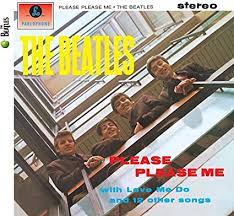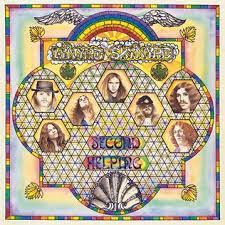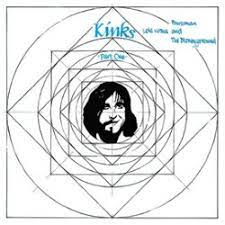Tutorial Pricing: $3.25ea OR any 10 for $10
(use code "Any10410" at checkout)
Paid Requests for $25ea
(comes with any 8 freebies -> so 9 for $25)
100's Of Free Demos & Chord Sheets
- Home
- 60s
- Most Popular Rolling Stones Songs
- The Rolling Stones Top Songs
The Rolling Stones Top Songs
On The Acoustic
Here on the Rolling Stones top songs page you'll find a collection of demo covers, free chord sheets, rhythm tips and some info on each song. As well there are full lesson tutorials available for purchase for a small fee.

Jump menu to quickly access the sections.
The Rolling Stones Top Songs
Lyrics, Demos, Chords, Tutorials
1. Out Of Control
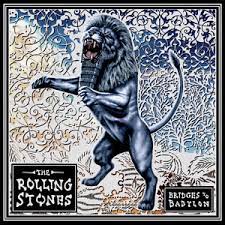
Out Of Control from the Rolling Stones was released in 1998 on their album "Bridges to Babylon." The song was written by Mick Jagger and Keith Richards.
"Out of Control" is a hard-driving rock song with a powerful rhythm section. The lyrics describe the feeling of being consumed by desire and losing control, with Jagger's vocals conveying a sense of urgency and intensity.
The song was well-received by fans and critics and has since become a fan favorite. It has been performed live by the Rolling Stones numerous times, and a live version was included on their 1998 concert film "Bridges to Babylon Tour '97–98."
The track is an example of the Rolling Stones' ability to continue to produce high-quality rock music well into their career. Despite being formed in the early 1960s, the band has continued to evolve and adapt to changing musical trends while maintaining their signature sound and style.
The song peaked at #51 in the UK and #12 in Poland.
- Drop D Tuning: No
- Capo: Capo 2nd fret
- Rhythm: downstrokes for the most pat
- Picking: Yes
- Chords: Am, F, G, E7, C
Chords & Lyrics
Jump To Top
2. Out Of Time
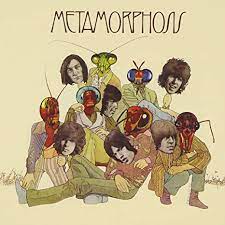
Out Of Time is a song by the Rolling Stones, released in 1975 on their album "Metamorphosis." The song was originally recorded during the sessions for their 1966 album "Aftermath," but it was not included on the album.
"Out of Time" is a mid-tempo ballad with a soulful, R&B-inspired sound. The song was written by Mick Jagger and Keith Richards and features a prominent horn section and backing vocals by the Sweet Inspirations.
The lyrics of "Out of Time" describe the end of a romantic relationship and the feelings of regret and nostalgia that come with it. Jagger's vocals are emotive and convey a sense of vulnerability and heartbreak.
The song has been covered by several artists over the years, including Chris Farlowe, who had a hit with his version in the UK in 1966. The Rolling Stones' version on "Metamorphosis" features a different arrangement and is considered a classic example of the band's ability to blend different musical genres and styles.
- Drop D Tuning: No
- Capo: No
- Rhythm: down down up down up down up and repeat
- Picking: Yes
- Chords: G, D/Gb, C, D, Em
Jump To Top
3. Paint It Black
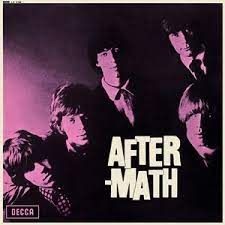
Paint It Black was released in 1966 as a single and later included on the album "Aftermath." The song was written by Mick Jagger and Keith Richards and features Brian Jones on sitar.
"Paint It Black" is known for its distinctive, steady rhythm and haunting melody, as well as its innovative use of the sitar in a rock song. The lyrics describe the singer's despair and darkness after the death of his lover, with the phrase "paint it black" representing his desire to cover up and hide his grief.
The song was a major hit for the Rolling Stones, reaching No. 1 on the US Billboard Hot 100 and the UK Singles Chart. It has since become one of the band's most popular and enduring songs, and has been covered by numerous artists over the years.
- Drop D Tuning: No
- Capo: No
- Rhythm: down up down up down up and repeat
- Picking: Yes
- Chords: Dm, A7, C, F, A7/A#
Jump To Top
4. Ruby Tuesday
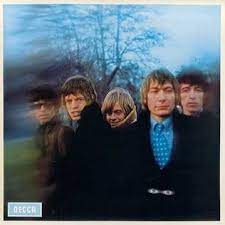
Ruby Tuesday is a popular song by the Rolling Stones, released as a single in 1967. The song was written by Mick Jagger and Keith Richards and is widely regarded as one of their most popular and enduring songs.
The lyrics of "Ruby Tuesday" tell the story of a free-spirited woman who refuses to be tied down by anyone or anything. The song has a melancholic tone and reflects on the transience of life, as the narrator ponders the fleeting nature of relationships and the passing of time.
Musically, "Ruby Tuesday" is a folk-influenced ballad featuring a prominent acoustic guitar riff, a string arrangement, and Jagger's distinctive vocals. The song has been covered by numerous artists over the years and has become a staple of classic rock radio.
"Ruby Tuesday" was a commercial success, reaching the top ten on both the UK and US charts. It is widely considered to be one of the Rolling Stones' greatest songs and has been included on several of the band's greatest hits albums as well as the album "Between The Buttons".
- Drop D Tuning: No
- Capo: 1st fret
- Rhythm: down down down up down up and repeat
- Picking: No
- Chords: Am, Am/G, F, G, C, Gsus, D7, G7, A#
Jump To Top
5. The Last Time
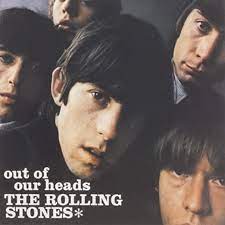
The Last Time was a 1965 single and later included on their album "Out of Our Heads."
"The Last Time" is a classic example of the Rolling Stones' early rock and roll sound. The lyrics describe a man warning his partner that he will not tolerate her infidelity any longer, and the sense of urgency and determination in Jagger's vocals add to the song's power and intensity.
"The Last Time" was a major hit for the Rolling Stones, reaching No. 1 in the UK and No. 9 in the US. It has since become one of the band's most beloved and enduring songs, and has been covered by numerous artists over the years.
The song is notable for its influence on other artists, particularly in the development of punk rock. The riff and rhythm of "The Last Time" were later used in the song "This Is Radio Clash" by the Clash, and the song's lyrics have been referenced in songs by other punk and post-punk bands.
- Drop D Tuning: No
- Capo: No
- Rhythm: root down root up down up with some riffs mixed
- Picking: Yes
- Chords: E, D, A
Jump To Top
6. Time Is On My Side
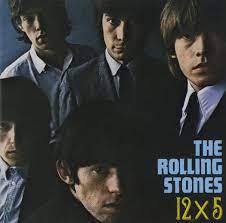
Time Is On My Side was originally recorded by the jazz trombonist Kai Winding in 1963 and later covered by the Stones in 1964 for their album "12 x 5." The song was written by Jerry Ragovoy, under the pseudonym of Norman Meade.
The Rolling Stones' version of "Time Is on My Side" features a slower, more soulful arrangement, with Mick Jagger's vocals and organ playing at the forefront. The song's lyrics describe a man who is confident that time is on his side and that he will eventually win back his lover's affection.
"Time Is on My Side" was a moderate hit for the Rolling Stones, reaching No. 6 on the US Billboard Hot 100 chart. The song's popularity helped to establish the band's reputation in the United States and set the stage for their subsequent success.
The song has been covered by numerous artists over the years, including Irma Thomas, the Moody Blues, and the Who. The Stones themselves have also performed the song many times in concert throughout their career.
This single did not chart in the UK market.
- Drop D Tuning: No
- Capo: 3rd fret
- Rhythm: down down down up down up down and repeat will work here
- Picking: Yes
- Chords: G, Bm, E, A, D
Jump To Top
7. Under My Thumb
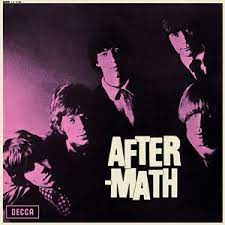
Under My Thumb was created by the Rolling Stones way back in 1966 when it was part of their album called "Aftermath."
Even though it wasn't released as a single in the UK or US, it's still one of the most loved songs by the Rolling Stones. It has a long history of being performed live and is very important culturally.
Mick Jagger and Keith Richards, who started the Rolling Stones and wrote most of their songs, wrote this song together.
It talks about things like relationships and power, which were common themes in their songwriting at that time.
Even though it wasn't a hit single, the song got played a lot on the radio, and people still really like it today. The Rolling Stones have played it at many of their concerts, and it's usually on their setlists.
- Drop D Tuning: No
- Capo: No
- Rhythm: down down up down up down up and repeat
- Picking: Yes
- Chords: Gbm, E, D, A, B7
Jump To Top
8. You Can't Always Get What You Want
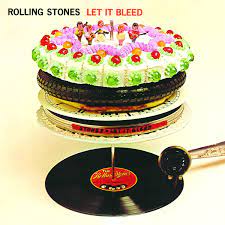
You Can't Always Get What You Want is a great tune that never charted in the UK and barely made the top 40 in the US when it was released in 1973.
The song's lyrics describe the struggles and disappointments of everyday life, while also emphasizing the importance of perseverance and determination in the face of adversity.
The song has become one of the Rolling Stones' most enduring hits, and has been covered by numerous artists over the years, including Aretha Franklin, U2, and Bon Jovi.
It was also famously used as the closing song at the 1969 Altamont Free Concert, where it played as a counterpoint to the violence and chaos that had erupted during the Stones' set. The song has since become associated with the turbulent political and cultural climate of the late 1960s.
- Drop D Tuning: No
- Capo: No
- Rhythm: root down up root down and repeat
- Picking: Yes
- Chords: G, C, A7
Jump To Top
If you liked this Rolling Stones top songs page you might also like ... (click images)
Popular Songs From The 60s
